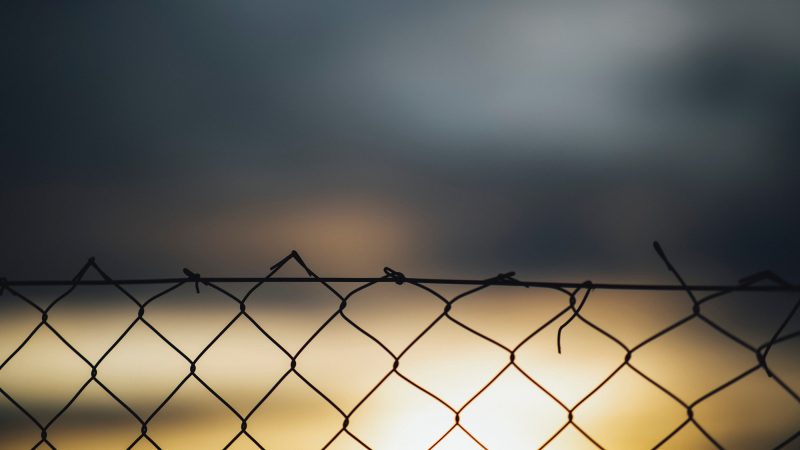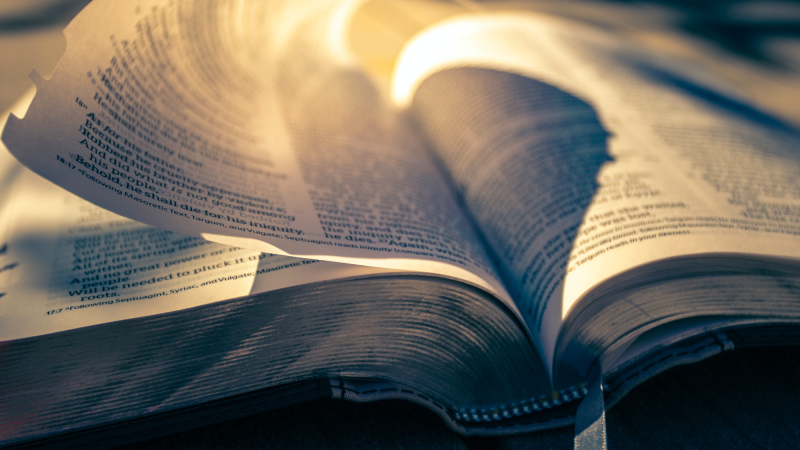David Graeber was an iconoclastic anthropologist and influential radical thinker, one who popularized the rallying cry "We are the 99%." He died on Sept. 2 in Venice, Italy at age 59. Read more
Episode Archives
Nerds are an easy target for humor in movies and on TV... with their thick black glasses, hopelessly out-of-fashion clothes, and over-enunciated diction. But there's a dark side to nerds. In this hour of To the Best of Our Knowledge, we'll find out how the nerd stereotype is harming our children...Read more
Well we made it through the anticipated apocalypse.
In this age of globalization, why would anyone want borders, an army, currency? Isn’t that kind of … old school? Read more
One of this year's big novels is Colson Whitehead's sweeping historical novel, "The Underground Railroad." It's an unflinching look at the experience of slavery, inspired by the classic slave narratives. And being a sci-fi geek, Whitehead also weaves in bits of fantasy, creating an alternative...Read more
Buried scrolls, clay tablets, priceless artifacts and expensive forgeries – this week, we bring you stories from the strange and amazing world of biblical archeology.Read more
You might think that men’s anxiety over baldness is a relatively recent development in the history of civilization. But it’s not. The ancient Romans invented the comb-over and paint-on hair, which has since become spray-on hair. In this hour of To the Best of Our Knowledge we’...Read more
It's the liberal's apocalypse. Consider empty big-box stories, deserted highways, worthless pieces of paper we used to call money. The economy collapses. There's widespread violence and social unrest. The only people with a fighting chance ride out the storm in life-boat communities with access...Read more
American children grow up playing Pokemon and Yu-Gi-Oh. As adults, they line up for the latest anime movies and hang out in karaoke bars. In other words -- Japanese culture is serious business. So serious that Japan's Prime Minister appointed a "Cool Japan" minister to oversee...Read more
Everybody gets excited about whatever's new, but what about what's really, really old? In this hour of To the Best of Our Knowledge we commemorate geologic time. We'll meet the scientists who found the oldest object on Earth - a three point four billion year old zircon! And the Jazz...Read more
Why do people embrace the experimental visual art of Mark Rothko but avoid the experimental music of Karlheinz Stockhausen? That's the question that David Stubbs explores in his book, "Fear of Music." We'll meet Stubbs in this hour of To the Best of Our Knowledge. Also,...Read more
The pursuit of knowledge can make you do weird things. Sir Isaac Newton explored his eye-socket with a wooden stick. Swedish chemist Karl Scheele was undone by the toxic chemicals he insisted on tasting. And a German scientist named Becher spent years trying to make gold from his own urine,...Read more
Bohemians used to hate anything that reeked of money. It destroyed the soul. Now, many self-styled bohemians are reveling in slate shower stalls, Range Rovers, and lava-rock grills. In this hour of To the Best of Our Knowledge, the triumphs of the “Bobo” – the Bourgeois...Read more
Suppose there's a pill that would dramatically boost your creativity. Would you take it? Psychologist Jim Fadiman says that pill exists. It's the powerful hallucinogen LSD. Fadiman describes a remarkable experiment showing how psychedelics enhanced the creativity of senior scientists. Read more
Have you ever wished you cared less or been told to develop a thicker skin? For the polite and anxious among us, suddenly being immune to criticism and embarrassment might seem to be a superpower. In this hour, we’re exploring...Read more
Start telling love stories and chances are, you’ll find yourself telling tales of transgression. In this hour of To the Best of Our Knowledge, Joyce Carol Oates talks about the harm done by family secrets. P.D. James muses on why women are so good at crime fiction. A...Read more
It’s been described as the Nobel Prize of motion pictures: the coveted Academy Award. One billion people around the world watch the Oscars on TV every year. In this hour of To the Best of Our Knowledge, the history and politics of the Academy Awards. Is Oscar a white man’s award? Also, Don...Read more
Are you a knave? Scalawag? A varlet? Are you a scoundrel? Maybe you’re not but secretly you want to be. Being a scoundrel kind of has a ring to it. It’s romantic. Rebellious.Read more
In the mid-80's the metal band Winger topped the charts with hits like "Seventeen." Then Grunge came along and left bands like Winger in the dust. Now, Kip Winger is back on top with a new CD that debuted at #1 on the music charts. Only this time, he's rocking the classical charts....Read more
“The medium is the message.” “We shape our tools and thereafter our tools shape us.” “We look at the present through a rear-view mirror. We march backwards into the future.” Those are just a few of Marshall McLuhan’s famous quotes. McLuhan is one of the most influential media thinkers of...Read more
She's a little bit country. She's a little bit rock and roll. Carlene Carter grew up surrounded by music. She's the daughter of June Carter and the stepdaughter of Johnny Cash. And Carlene followed in their footsteps, with a few twists and turns along the way. In this hour of the Peabody Award-...Read more
Behold the spectacle of epic proportions! The abundant feast laid out! Tribes decked in battle attire!
Yes, friends. It's Super Bowl weekend, and have we got a show for you...Read more
Whittier called them "the saddest words: it might have been." But turn it around and you'll find places we create to replace the world we live in -- past, present and future. On To the Best of Our Knowledge, other worlds. Scientist Brian Greene looks at the physics of the multiverse, and...Read more
Tariq Ramadan has been called the Muslim Martin Luther King, and he's often described as Europe's most important Muslim intellectual. Hundreds of young Muslims turn up at his talks, and tapes of his lectures are widely circulated. He travels throughout the Islamic world, trying to build...Read more







